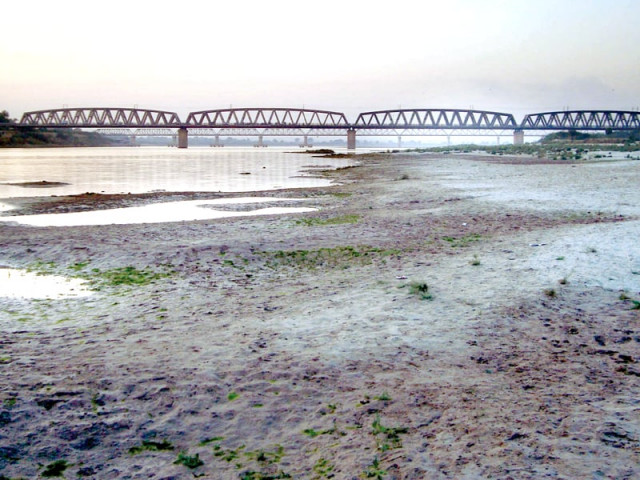Attention required: Environmentalists shed light on battle against climate change
Ask for focus to be on development of local communities.

In the battle against climate change, only minor interventions have taken place in Sindh, according to the Environment and Alternate Energy Department’s secretary, Mir Hussain Ali, adding that instead of developing coastal highways, the focus should be on development of local communities.
“Particularly estuarine and the coastal areas of Sindh are neglected and only community mobilisation, for coastal areas, has been undertaken by government and non-government supported projects,” said Ali.
He was speaking at the Sheraton Hotel where the Partnership Fund, Indus for All Programme-Worldwide Fund (WWF) for Nature launched the paper ‘Along the Indus River: Engaging Communities, Sustaining Environment’.
The publication presents 11 case studies of successful projects on the Indus.
Ali says the major area that needs to be addressed in coastal areas is the vulnerability to cyclones caused by climate change because the coastal areas have their own unique ecological, economic and social significance. Cited a World Bank study, he said that 15 per cent of Sindh’s Gross Domestic Product is lost due to environmental degradation.
“The cut back of fresh water from River Indus, rate of sea intrusion has increased manifold and effects are very visible,” Ali added.
The WWF Deputy Director General Dr Ejaz Ahmed said that the health of the mangroves ecosystem is a good indicator of the health of the river as it is directly affected by the flow of the Indus. One of the issues that have been listed earlier by environmentalists in battling climate change is that there are too many cooks in the kitchen and the work becomes divided among too many organisations that don’t tend to work with each other.
But Ahmed didn’t highlight that as an issue, stating that the United Kingdom and Netherlands have supported the Indus for All Programme in four priority areas in the Indus region while it has provided small grants through its programme to NGOs, government and academia for conservation projects.
The Secretary Forest and Wildlife Department’s Mushtaque Ali Memon touched upon the issue, saying that the WWF has done a good job in “creating alliances between communities, environmental and resource conservation groups and government departments.”
Programme Coordinator Indus for All Programme Nasir Ali Panhwar said that the 50-year vision for the Indus Eco region conservation has been developed and focuses on four major areas: the conservation of species, conservation of natural habitats, livelihood support and alternate energy. Under the Partnership Fund this will include 54 conservation projects.
“Around 80 per cent of the projects will be implemented in the lower Indus basin, while 20 per cent will be in the upper Indus basin. We hope that based on the success of projects, other stakeholders would see a benefit and further scale up and replicate the projects,” said Panhwar.
Senior Chief Planning and Development Department Fazal Ahmed Nizamani, Director Fisheries Ghulam Mujtaba Wadhar, Majeed Mangrio, Farhan Anwar, Yaseen Rind, Muharam Keerio and others also spoke and shared their experiences on the occasion while 14 partner organisations were given the Indus Conservation Award.
Published In The Express Tribune, June 23rd, 2012.



















COMMENTS
Comments are moderated and generally will be posted if they are on-topic and not abusive.
For more information, please see our Comments FAQ